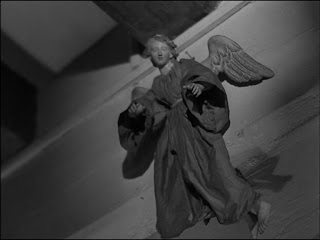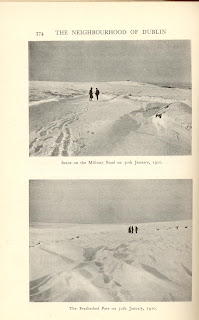

Tory. Achill. A tiny one near Ballydehob with a restaurant on it whose name I forget. Mull. Arran (the Scottish one). Oh, and Dalkey Island too. Such is my paltry tally of offshore islands. Do Ireland and Albion count as offshore islands? To each other, perhaps? Tory islanders speak of ‘going over to Ireland’, after all.
Hugh MacDiarmid lived for a while on Whalsay, in the pleasingly named townland of Sodom. I’m as puzzled as anyone else by the precipitous falling off in quality of MacDiarmid’s work in the 1930s, and the plagiarizing will to power, nay, will to omniscience that stepped into the space vacated by the peerless lyricist of
Penny Wheep and
Sangschaw. Compare:
A wumman cam’ up frae the blae deeps o’ the sea
And ‘I’m Jeannie McQueen’, she said, lauchin’ to me.
But it’s ‘Gi way wi’ your oyster-shine, lassie, gi’ way’ –
For she’d a different colour in the nail o’ each tae.
And:
I am no further from the ‘centre of things’
In the Shetlands here than in London, New York, or Tokio,
No further from ‘the great warm heart of humanity’,
Or the ‘general good’, no less ‘central to human destiny’,
Sitting alone here enjoying life’s greatest good,
The pleasure of my own company,
Than if I were one with the crowds in the streets
In any of the great centres of population,
Or in a mile-long cinema queue, or a unit
In a two-hundred-thousand spectatorate
At Twickenham or Murrayfield or Ibrox...
The first is from ‘ Shetland Lyrics’, the second from ‘In the Shetland Islands’. I wonder whether there is any truth in the story that when he wrote ‘Water Music’, also on the Shetlands, he had access to the A-L half of
Jamieson’s Dictionary but not M-Z, which would explain the alphabetically slanted inflection of that fine poem’s Scots aquarelles:
Archin’ here and arrachin there,
Allevolie or allemand,
Whiles appliable, whiles areird,
The polysemous poem’s planned...
Plenty of water, and water music, in the work of Jen Hadfield, as recently belaurelled with an Eliot Prize. Some of the poems in
Nigh-No-Place display amoebic tendencies, which I’m presuming represents an effort to imitate the shape of various Shetland isles. Hadfield lives on Burra, that ‘bit /of broken biscuit’, and in ‘Burra Grace’ we watch two ‘peew-t’s wrench free of their company (whimbrels, shalders and rabbits) onto a page of their own. ‘peew-t /peew-t’: that’s it. Never has Charles Olson earned his keep so economically.
Shetland words: ‘daed-traa’ means slack of the tide (Gaelic speakers will hear
trá there, though Gaelic has never been spoken on Shetland), ‘snuskit’ (sulky), ‘stumba’ (a thick mist), ‘hüm’ (twilight, mist).
A place of blashey wadder:
At dusk I walked to the postbox,
and the storm that must’ve passed you earlier today
skirled long, luminous ropes of hail between my feet
and I crackled in my waterproof
like a roasting rack of lamb.
And across the loch,
the waterfalls blew right up off the cliff
in grand plumes like smoking chimneys.
And on the road,
even the puddles ran uphill.
Occasional glances across the sound at Fair Isle and Foula. There is a Foul Sound in Galway (snigger snigger) and a river Foulness in East Yorks, but Foula is pronounced ‘Foola’, though it does have a fowl in there somethere, from the Old Norse
Fugløy. Foula was one of the last places in Scotland where ‘Norn’ was still spoken, and the last to employ Udal law, which I assume is a kind of Shetlands sharia reguating the punishments for intercourse with sheep and reading the papers on Sunday. Hamish Haswell-Smith notes in
The Scottish Isles that Foula can be cut off for seven or eight weeks at a time, and that its pier remains primitive, so if you go, expect to stay. Michael Powell filmed
The Edge of the World there in 1937 about the depopulation of St Kilda, having failed to get permission to film on St Kilda itself. Comparing Hirta (St Kilda) and Foula, Haswell-Smith notes that the houses on the former all huddle together whereas those on Foula stand apart, a fact he appears to link to the former going under while the second still thrives.
Back on Burra, Hadfield calls her cat in:
I open up, send Goodnight across the brae,
and the wind canters in
and she with a wild carol
and all the night hail
melted gleaming in her furs.
{Ends}
I recommend this book.
Jen Hadfield,
Nigh-No-Place (Bloodaxe, £7.95)

















